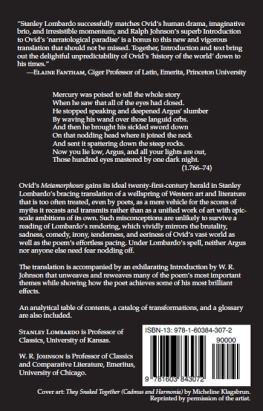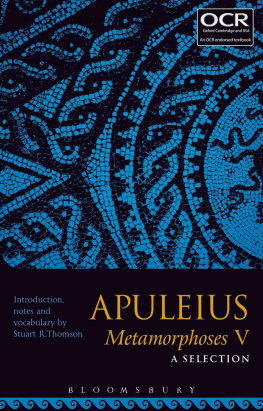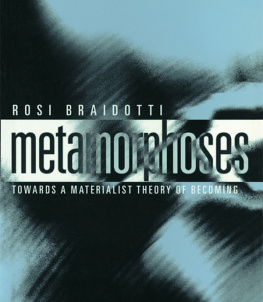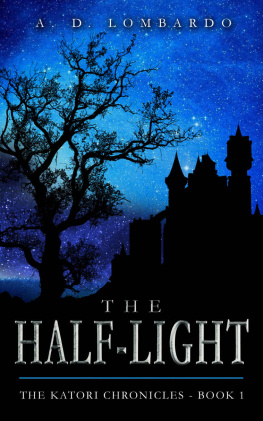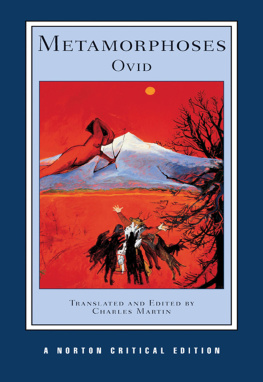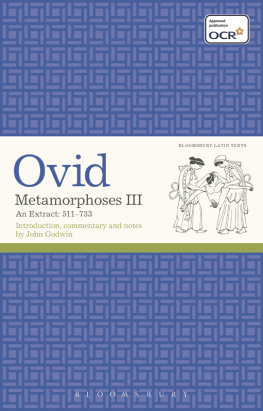OVID
METAMORPHOSES
OVID
METAMORPHOSES
Translated by Stanley Lombardo
Introduction by W. R. Johnson
Hackett Publishing Company, Inc.
Indianapolis/Cambridge
Copyright 2010 by Hackett Publishing Company, Inc.
All rights reserved
Printed in the United States of America
14 13 12 11 10 1 2 3 4 5 6 7
For further information, please address
Hackett Publishing Company, Inc.
P.O. Box 44937
Indianapolis, Indiana 46244-0937
www.hackettpublishing.com
Cover design by Brian Rak and Elizabeth L. Wilson
Interior design by Elizabeth L. Wilson
Composition by Agnews, Inc.
Printed at Sheridan Books, Inc.
Cover art: They Snaked Together (Cadmus and Harmonia) by Micheline Klagsbrun.
Reprinted by permission of the artist.
Library of Congress Cataloging-in-Publication Data
Ovid, 43 B.C.17 or 18 A.D.
[Metamorphoses. English]
Metamorphoses / Ovid ; translated by Stanley Lombardo ; introduction
by W. R. Johnson.
p. cm.
Includes bibliographical references.
ISBN 978-1-60384-307-2 (pbk.) ISBN 978-1-60384-308-9 (cloth)
1. Fables, LatinTranslations into English. 2. MetamorphosisMythologyPoetry. 3. Mythology, ClassicalPoetry. I. Lombardo, Stanley, 1943II. Title.
PA6522.M2L66 2010
873'.01dc22
2010019307
epub ISBN: 978-1-60384-539-7
PRC ISBN: 978-1-60384-540-3
Contents
Tales and episodes related in the poem are indicated below. Tales told by a character (as well as epitaphs and descriptions of works of fine art) are indicated by indentation. Unless otherwise indicated, narration is given directly by the poet.
|
|
90153 |
15467 |
167261 |
21661 |
262323 |
324453 |
45469 |
470601 |
602802 |
73974 |
80338 |
1444 |
36061 |
445592 |
593708 |
61635 |
63557 |
66066 |
70955 |
75690 |
791924 |
92571 |
1147 |
148267 |
268342 |
34370 |
371561 |
562810 |
641765 |
1424 |
65188 |
189211 |
21261 |
262320 |
321424 |
42554 |
454601 |
60222 |
62368 |
669901 |
1289 |
290787 |
296311 |
31341 |
342787 |
37386 |
387766 |
659740 |
1162 |
80114 |
11542 |
163354 |
355471 |
361434 |
378434 |
43557 |
45871 |
472780 |
66578 |
781830 |
1503 |
486503 |
50442 |
542960 |
570669 |
670723 |
756960 |
1183 |
184220 |
22178 |
279303 |
304625 |
8.6269.94 |
65676 |
67689 |
697817 |
818999 |
[ Tales from Achelos Feast (continued) ]
Achelos and Hercules (as told by Achelos) |
194 |
95146 |
147304 |
305445 |
31665 |
366445 |
446518 |
519764 |
765915 |
|
1109 |
11048 |
149846 |
16269 |
170233 |
23458 |
25965 |
266331 |
332593 |
594846 |
645809 |
|
92220 |
22160 |
261313 |
314480 |
341405 |
481862 |
863922 |
867922 |
|
5180 |
81172 |
173663 |
198246 |
247616 |
61760 |
664719 |
1480 |
6141 |
148460 |
481515 |
51675 |
576693 |
694751 |
752847 |
774813 |
81447 |
13.84814.80 |
8991068 |
9451036 |
10691145 |
|
81521 |
15076 |
178510 |
194253 |
254510 |
369503 |
51415 |
52194 |
54094 |
595612 |
61351 |
65270 |
671715 |
716890 |
80482 |
891927 |
92853 |
95481 |
|
1368 |
69515 |
516602 |
52996 |
60382 |
683827 |
828980 |
98192 |
The History of Everything
Who among Ovids first readers could have predicted that this master of numerous short comic poems, just at the midpoint of his poetic career, would undertake and complete a long and complex poem that would come to rival the Aeneid (and perhaps outdo it) in its influence on the literature of Western Europe? He had begun with publishing five volumes of lighthearted love elegies (later harshly winnowed and reduced to three volumes). He had then turned to witty, sometimes poignant representations of legendary ladies writing letters to the men who had absented themselves from their felicity (the Heroides). After this splendid compilation, he had written a poem in three volumes, giving cynical and shamelessly sexist (and hilarious) advice to men who needed help in obtaining the consent of the women they lusted after, the Ars Amatoria, a sort of seducers manual. This poem (which may have earned him the intense displeasure of Emperor Augustus and his permanent exile to the Black Sea) was followed by the Metamorphoses, an immense poem in fifteen volumes, which took as its chief theme a paradox to which Heraclitus had given its essential form: all things flow, you never step into the same river twice,in short, it is changing realities that constitute the only real permanence in the universe.
Ovid may have been drawn to this particular theme because it gave him warrant to retell stories that he happened to like, stories drawn from Greek myths that focused on (and explained) how given entities came into existence, in particular how certain beings, both semidivine and human, were transformed into animals, vegetables, and minerals. This seemingly limitless source, a narratological paradise, offered the storyteller all the material he needed to construct vivid characters, dramatic conflicts, and surprising outcomes. The major problem facing the poet who found this treasure house irresistible was how to impose on this delicious welter some semblance of intelligible order. (One of Ovids masters, the Alexandrian poet Callimachus, had found a solution to this problem, but his
Next page
